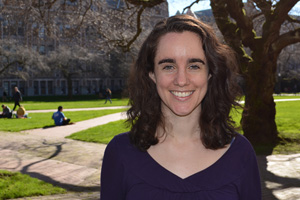Greater access to green space is associated with less depression, according to a new study of twins from the University of Washington School of Public Health.

The study, led by PhD epidemiology student Hannah Cohen-Cline, found that within pairs of twins, the twin who lived in or around more dense vegetation had a lower risk of depression. Studying twins allowed researchers to examine the association between green space and mental health above and beyond genetic or childhood family environment factors.
The study supports previous findings linking greener neighborhood environments and improved mental health.
"Green areas such as parks offer many benefits," Cohen-Cline said. "They can serve as a place for people to congregate and socialize, or exercise, both of which are shown to help mental health. Additionally, there is a theory that being in and around plants simply makes people feel better mentally; nature reduces mental fatigue."
Common mental disorders such as stress, anxiety and depression affect a substantial portion of the United States population.
"We know that neighborhood environment impacts health," Cohen-Cline said. "Modifying the neighborhood to be more healthy could benefit the general health of the population."
Cohen-Cline analyzed data from more than 4,300 twins in the University of Washington Twin Registry. Green space was measured by a vegetation index that uses satellite remote sensors. Levels of depression, stress and anxiety were self-reported.
The researchers adjusted their findings for physical exercise, which has been shown to reduce common mental disorders. "We were interested in the effect of access to green space on mental health separate from any influence physical activity might have," Cohen-Cline said.
Although researchers found an inverse association between green space and depression, they did not find any links between greater green space and lower levels of anxiety or stress. They are not sure why that is, according to Cohen-Cline.
